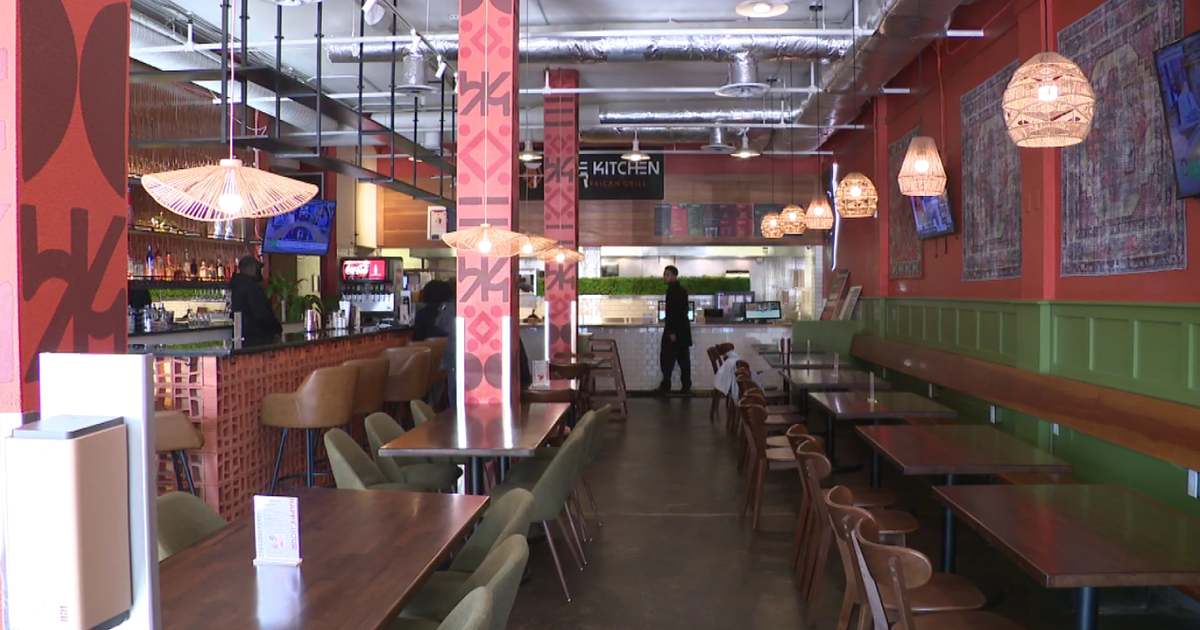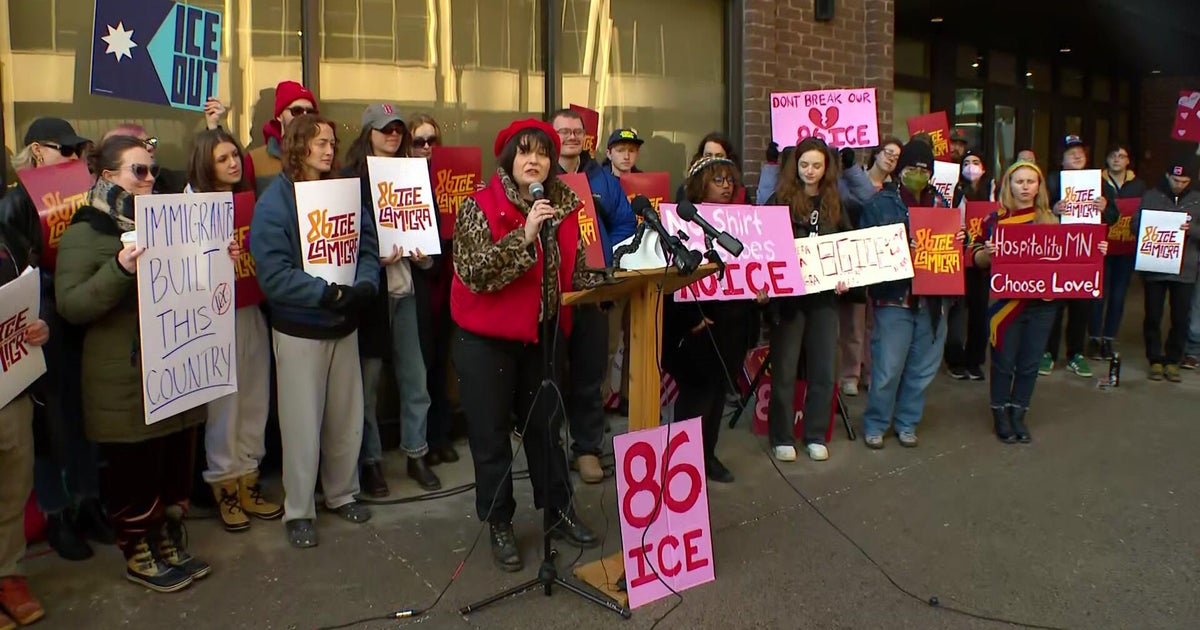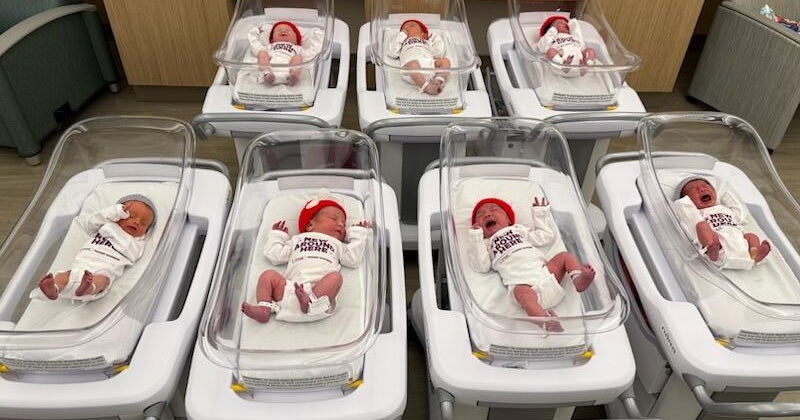Meet the Chicago woman who helped bring robots to Chicago restaurants
CHICAGO (CBS) -- Some restaurants have started using service robots to help staff with basic tasks. The bulk of the robots in Chicago's restaurants were sold by one woman who began sourcing them from China to help her own staff stay safe during the early days of the COVID-19 pandemic. Now she's a major distributor both in Chicago and Asia.
You might have noticed little robots making their way through some of the city's restaurants – zooming through kitchens, or past tables, piled high with steaming plates of food.
"A lot of the customers like the robot because they are really cute," said Stephanie Gong, one of the first restaurateurs to bring robots onto the dining room floor and into the kitchen.
It all started during COVID. Gong had been running her three restaurants for decades, so she and her husband Ivan Williams were on the hunt for anything to help her keep from having to lay off her staff.
"We use three different kinds of robot; cleaning robot, delivery robot, cooking robot," Gong said. "I try to use robot help the worker deliver food for the customers. When I know more, I know robot is the future. Actually, robot is now."
"We didn't close one single day, and that's where the whole thing about the robotics came in. You know, she's trying to figure out a way to make it work. So she's like, 'Let me try different robots to see how they can help the staff," Williams said.
Gong imported the robots from China, where they were already popular.
"Because I was a nurse in China, so that's why I know how to protect the worker," Gong said.
The robots allowed her staff to maintain their distance, and for Gong to retain her whole team through the pandemic.
"They loved it. Like, when I teach them how to use, immediately they use. They were so busy, and we just we started a robot. Immediately they say, 'Okay, teach me how to use. I need the help,'" she said.
Kitchen workers said it cuts the time in half, especially for big batches.
Gong quickly realized she wasn't the only restaurateur in need of some help.
"A lot of restaurants closed, not because they don't have business, because they don't have workers," she said.
She got some office space, and buffed up her inventory, then began selling robots to small business owners like herself, and RuTech Robotics was born.
Her first successes were in China, selling to restaurant owners in her hometown. But the American market began to catch on, with Gong's RuTech Robotics as their major distributor, getting robots into restaurants around Illinois and 29 other states.
"In the future, I think it would just be the norm that if a restaurant doesn't have a robot, people might not want to work there, because they will feel, 'I have to carry all the dishes. I have to do this and that,'" Williams said.
"The world is change, and the new technology is helping people a lot," Gong said.
To those who are wary of what might feel wary of the seeming automation of everything, Gong sees it no differently than doing laundry.
"I still remember when I was kids. At the time in China, they had the washing machine coming, and I remember my grandma at the time, she said 'Hand wash is better than this,' but think about today. Who don't use the washing machine?" Gong said.
Part of the reason restaurant robotics hasn't really taken hold in the U.S. has been due to the lack of availability of in-person and customer service and maintenance techs. But Gong and RuTech serve as that bridge between manufacturers and their newer American clientele.







